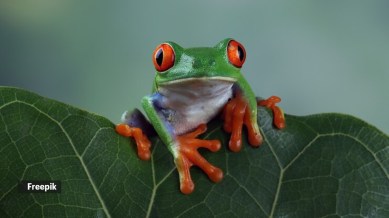📣 For more lifestyle news, click here to join our WhatsApp Channel and also follow us on Instagram
5 animals that eat their offspring
In the animal kingdom, all is fair, and survival is the only thing that matters. Some species even eat their own young for evolutionary advantage

Cannibalism – the act of eating an individual of the same species – is viewed as morally unacceptable and can pose health and evolutionary risks. It can spread diseases and endanger genetic diversity. However, it is more common in the animal kingdom than you might think, often driven by surprising evolutionary logic. In fact, you would be surprised to learn that certain animals eat their offspring.
Here are five animals that eat their young:
monthly limit of free stories.
with an Express account.
1. Lions
When a new male takes over a pride, he will commonly kill any existing cubs, to not become a “stepfather” investing resources into young that aren’t his own. It also means that he can breed with the mothers sooner. While infanticide is common, cannibalism occurs occasionally but is not always the case.
2. Chimpanzees
Although primarily herbivorous, chimpanzees like hunting monkeys and bush pigs for food. However, some male chimpanzees have been observed eating newborn infants, particularly when they suspect they are not the father. This behaviour is believed to increase their chances of mating with the mother and outcompeting rival males.
3. Hamsters
In both captivity and the wild, hamster mothers sometimes eat their own newborns. This usually happens when the mother lacks essential nutrients or feels stressed, suggesting a survival-driven response rather than aggression.
4. Cane Toads
Cannibalism is not limited to parent-offspring relationships, it is also observed among siblings. In the case of cane toads, larger tadpoles frequently consume newly hatched siblings. This behaviour helps reduce competition for resources and improves survival rates for the stronger individuals.
5. Rabbits
Rabbits are known to gobble up their stillborn babies to prevent predators from detecting their nests. By removing any trace of the dead offspring, they help protect their surviving young.
📣 For more lifestyle news, click here to join our WhatsApp Channel and also follow us on Instagram